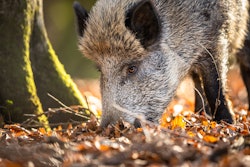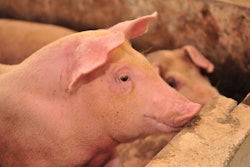
In the Philippines, the Department of Agriculture (DA) and Food and Drug Administration are collaborating to expedite the approval of one or more vaccines for the control of African swine fever (ASF).
Over the past week, the Philippine News Agency has reported a senior DA official saying that this cooperation is in line with a directive from President Ferdinand Marcos Jr. to accelerate vaccine procurement to combat the disease.
Despite the latest push, the DA has said the vaccine will not be available before the end of 2024 or early 2025.
In July 2023, the world’s first vaccines for pigs against ASF were authorized in Vietnam. The Philippines is among a handful of states known to be seeking early approval for the registration and commercial administration of an ASF vaccine.
Latest update from the Bureau of Animal Industry (BAI), dated March 26, indicates active ASF outbreaks in 12 provinces in eight regions of the country. For comparison, the country has 82 provinces and 17 regions, of which 73 and all 17, respectively, have recorded ASF outbreaks since 2019.
Since the previous edition from March 8, BAI has added the Calabarzon region of Luzon and Caraga region of Mindanao as regions with active ASF cases, while Western Visayas has been dropped from the “active” list.
Worst affected by the disease continues to be the western island region of Mimaropa. Here, the disease is regarded as being present in 74 communities in two provinces.
ASF virus detected in Thai processing factories
After official inspections of three facilities in central Thailand, meat products have tested positive for the ASF virus.
Presence of the virus was found in samples of ground pork from three factories in Nakhon Pathom province, reported Nation of Thailand. The inspections came after allegations that the operators of these premises were using meat from pigs that had died of unknown causes.
Processing of such products is illegal in Thailand, and all such facilities must be licensed. As a result of these failings, the three facilities were ordered to close, and all products were seized.
Based on official notifications to the World Organisation for Animal Health (WOAH), there have been two series of ASF outbreaks in Thailand since the end of 2021. The main one — and the country’s first — began in November of that year, and was closed at the end of 2022 after 114 confirmed outbreaks in village herds in all six geographical regions of the country.
In September 2023, there was a single outbreak in another village herd in the far north of Thailand. This appears to have been an isolated outbreak, and the disease situation was declared “resolved” to WOAH in February.
Other ASF developments in Asia
As of early March, 87 ASF outbreaks had been confirmed in Vietnam since the start of 2024. This is according to the latest update on the ASF situation in Asia from the United Nations’ Food and Agriculture Organization (dated March 21). Cases have been reported in 21 of the country's provinces, and 3,030 pigs have been culled to prevent further spread of the virus.
The number of outbreaks is 36% higher than at the same time in 2023, according to this source. Worst affected continues to be the central province of Nghe An, where 52 outbreaks have been confirmed so far this year.
Since ASF was first detected in South Korea in 2019, total cases among the wild boar population has reached 3,867. This is according to Pigs & People (as of March 28).
An increase of 54 compared with the situation on March 18, 51 of these recent cases were found in the eastern province of North Gyeongsang.
The country’s total outbreaks in domestic pigs remains at 40.
View our continuing coverage of the global African swine fever situation.

















